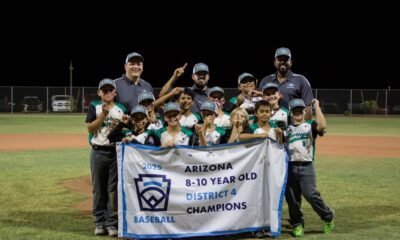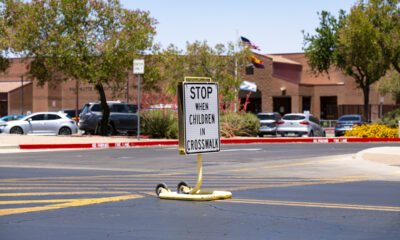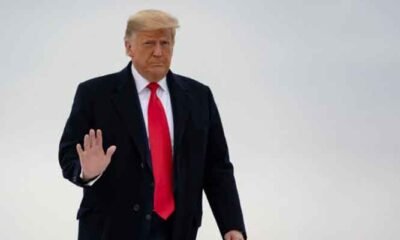budget cuts
Hobbs Asserts State Won’t “Bail Out” Trump Amid Grand Canyon Staffing Crisis

Arizona Governor Katie Hobbs has announced that the state will not allocate resources to assist the Grand Canyon National Park, despite potential repercussions for the state’s economy.
On Friday, Hobbs criticized the “rash and irrational decisions” made by the Trump administration regarding federal budget cuts. She emphasized that while the state would take necessary legal steps to contest these cuts, intervening to support laid-off National Parks Service employees—10 of whom were based at the Grand Canyon—was not within the state’s plans.
The layoffs have resulted in longer wait times at park entrances, prompting public concern. In a recent social media post, Hobbs described the situation as “a slap in the face for Arizonans and all who love to come here,” referencing the nearly 5 million visitors the Grand Canyon attracts each year.
Hobbs underscored the economic significance of the park, stating that the loss of essential workers undermines the state’s ability to promote one of the nation’s greatest natural attractions. Despite the urgency, she remained firm on her stance against using state funds to support federal employees.
“There is no guarantee that we would be reimbursed for that,” Hobbs noted, emphasizing her reluctance to use state dollars to mitigate the consequences of federal decisions. She expressed no interest in facilitating a “bailout” for the administration’s detrimental budget choices.
Historically, state intervention in such matters has occurred. In 1995, amid a federal budget impasse, then-Governor Fife Symington attempted to reopen the Grand Canyon by dispatching National Guard troops, though they were turned away initially. Ultimately, he negotiated with the Park Service to fund partial operations at a daily cost of $17,000, a decision driven by the potential economic fallout.
Currently, the Grand Canyon remains open, but ongoing delays have gained national attention, raising fears that prospective visitors may choose to avoid the park until operations normalize. Hobbs acknowledged the importance of the Grand Canyon for Arizona’s economy, stating that it brings jobs and revenue to the state.
Without a guarantee of federal reimbursement, Hobbs expressed her unwillingness to engage in measures that would alleviate visitor wait times. When questioned about whether political considerations influenced her decision, she dismissed the notion but reiterated her commitment to prioritizing the best interests of Arizonans.
The issue of reimbursement has precedent, as past governors have successfully negotiated commitments to recover state funds used to support the parks. However, the current scenario is distinct. Unlike previous situations that involved temporary closures during budget negotiations, the Trump administration’s cuts have resulted in ongoing funding reductions without clarity on future restorations.

















